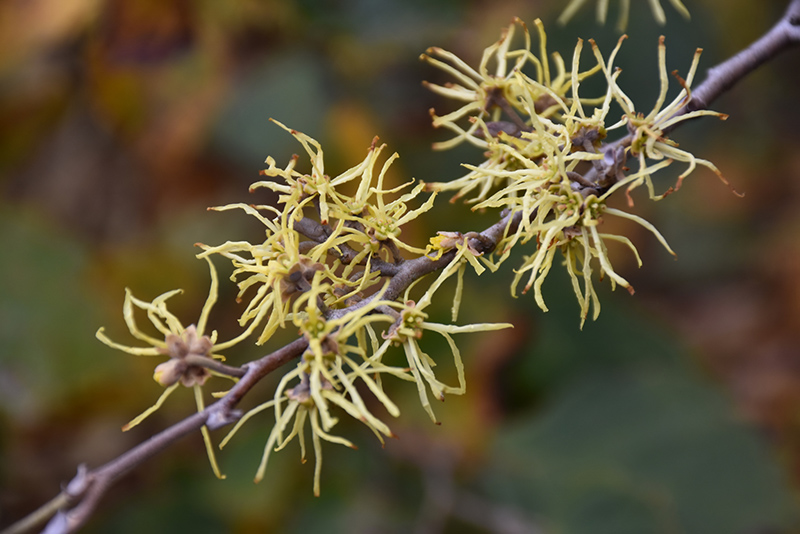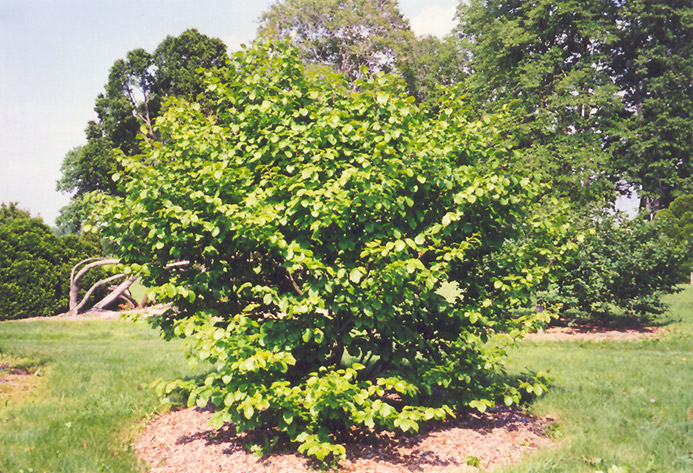Height: 18 feet
Spread: 20 feet
Sunlight:
![]()
![]()
![]()
Hardiness Zone: 4
Other Names: Witch Hazel
Description:
A large shrub with an upright, wide-spreading habit of growth; fall is its season to shine, with fragrant bright yellow strap-shaped flowers and golden fall foliage (which often hides the flowers); grow where space is not a problem
Ornamental Features
Common Witchhazel has fragrant yellow strap-like flowers along the branches in late fall before the leaves, which are interesting on close inspection. It has green deciduous foliage. The serrated round leaves turn an outstanding yellow in the fall.
Landscape Attributes
Common Witchhazel is a multi-stemmed deciduous shrub with a ground-hugging habit of growth. Its average texture blends into the landscape, but can be balanced by one or two finer or coarser trees or shrubs for an effective composition.
This is a relatively low maintenance shrub, and should only be pruned after flowering to avoid removing any of the current season's flowers. Deer don't particularly care for this plant and will usually leave it alone in favor of tastier treats. It has no significant negative characteristics.
Common Witchhazel is recommended for the following landscape applications;
- Accent
- Mass Planting
- Hedges/Screening
- Naturalizing And Woodland Gardens
Planting & Growing
Common Witchhazel will grow to be about 18 feet tall at maturity, with a spread of 20 feet. It tends to fill out right to the ground and therefore doesn't necessarily require facer plants in front, and is suitable for planting under power lines. It grows at a medium rate, and under ideal conditions can be expected to live for 50 years or more.
This shrub performs well in both full sun and full shade. It is quite adaptable, prefering to grow in average to wet conditions, and will even tolerate some standing water. It is not particular as to soil type, but has a definite preference for acidic soils, and is subject to chlorosis (yellowing) of the foliage in alkaline soils. It is somewhat tolerant of urban pollution. This species is native to parts of North America.


